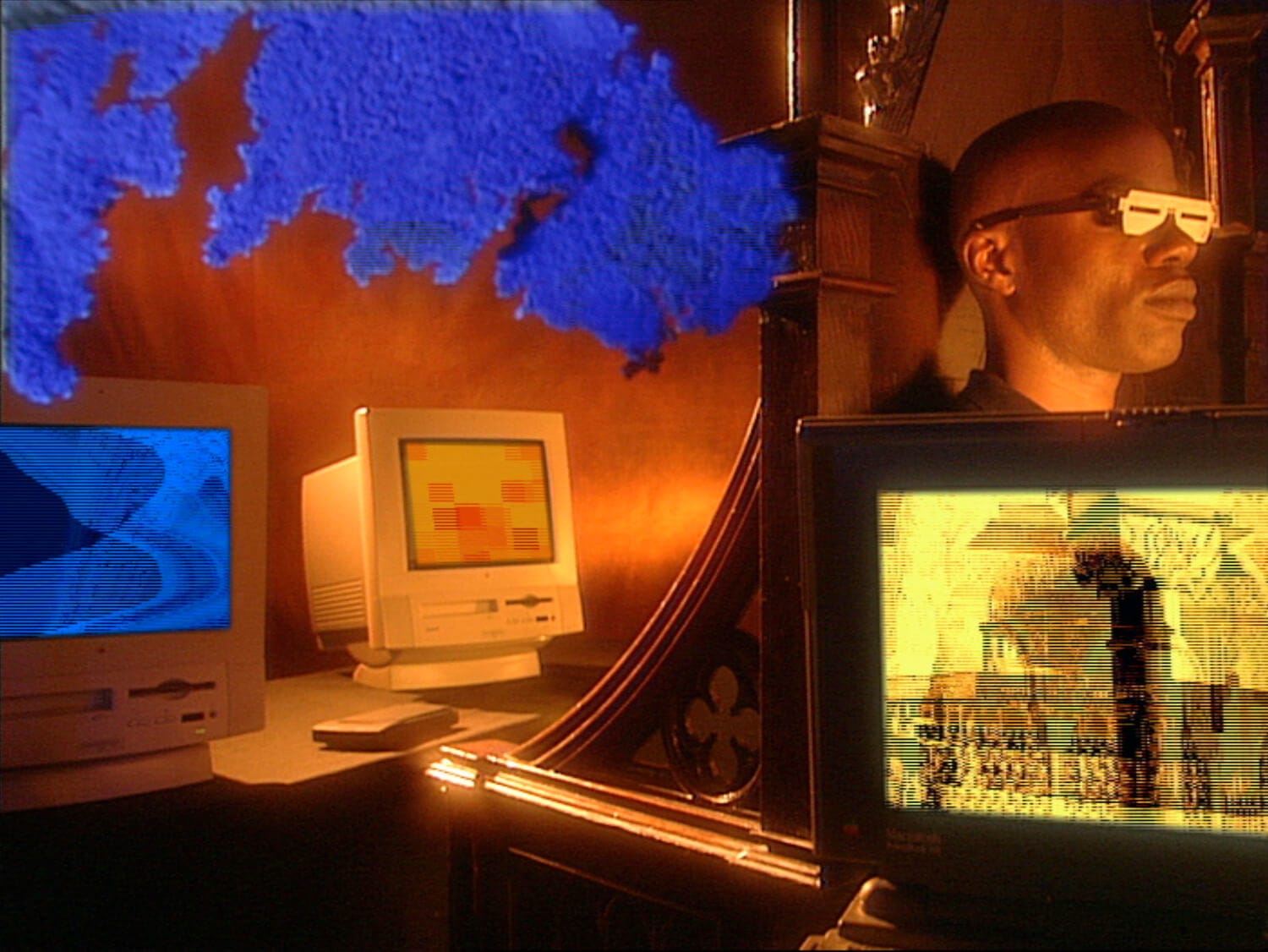The other day, I drove past a bunch of cars queued up in a lot and it took me a second to realize what was going on. When I did, I began to tear up. I feel quite hopeful for the first time in a while and look forward to life beginning again. Although, I might almost miss that eerie jolt of solitude that happens after every virtual event or Zoom call.
I visited Portland, Maine the other day and had my typical in-Portland-Maine experience, which is: what am I supposed to be doing here? Even in the summer, before the pandemic, I've always been both underwhelmed by what I can find exploring the downtown, while also left with the sense that there is something to explore, but I just don't know where to look. So if anyone has Portland recommendations, please send them along if I ever go there for a daytrip again.
The Criterion Channel Afrofuturism collection is unbelievably good and packed with gems. My favorite so far is John Akomfrah/Black Audio Film Collective's The Last Angel of History, which I'd recommend to anyone who likes the idea of Adam Curtis' new series more than the experience of watching all several hours. This is only 45 minutes. It includes interviews with Derrick May, Samuel R. Delany, Octavia E. Butler, and others and is one of the best looking documentaries I've seen in the while. Just look at this:
The best novel that I read in the past several months was The Sunken Land Begins to Rise Again by M John Harrison, but I might be writing about it elsewhere, so I'll save my notes for that. There are some interesting resonances with it and Lodge 49, which I have also become obsessed with recently. Both are good if you have been feeling, maybe not lonely yourself, but more aware of the ways that cities and infrastructures separate people from each other.
That might also explain how riveted I was listening to the audiobook of Neverwhere on my drive to Portland. I wondered who the actor was reading it, and it turned out to be Neil Gaiman himself. He’s a great reader, really natural at it, and it’s an easy through-the-wardrobe fantasy to follow along with. If I had thought about it, I might have listened to the radioplay version instead, but it was on Libby and fit what I was in the mood for at that moment. (The television series from 1996 is right now on that weird back catalogue graveyard Pluto TV. You don’t need to subscribe or pay to watch, but you will be interrupted with countless ads for prescription drug discount apps because we live in a society.)
I read The Golden Notebooks for the first time, loved it, and I was surprised what a pageturner it was—yes, it's brilliant and a fascinating book, but there's also a kind of Sex and the City man-of-the-week element to it. New (disappointing romantic interest) characters are introduced right to the very end of the book (each time I sang in my head, "Here comes the next one" from Lush's Ladykillers.)
Klara and the Sun was interesting. I'm not totally sure what I think of it. It starts out as another WhaT dOeS iT ReAllY mEaN tO bE HuMaN android story. Then it takes a wild turn and three-quarters in, the story is crowded with ideas but still told in a calm voice. It could be read along with Vonnegut's Harrison Bergeron — those resonant elements were the least explored, but the most interesting to me. At one moment, I thought the book was even about cancel culture (wtf?) but then a few pages later, I realized no, there's something more abstract that is explored here about how people gather and betray each other. I'd have to read it again to grasp some of it. So, yes, this is a recommendation but out of strangeness and well-plotted suspense, rather than the originality of the ideas explored. I guess the same could be said of Never Let Me Go? But the earlier dystopian novel had an aching emotional current that was missing here. Then again, it has an android narrator and there are some beautiful descriptions of computer vision as the actual vision of this character that I haven’t seen achieved with such grace before.
I really really loved Red Pill. The book, as I read it, was completely different from reviews, so don’t let them put you off. It explores how susceptible artists and intellectuals are to fascism. I find myself thinking of it constantly because, unfortunately, examples of this are plentiful. It is a Trump-era book, but as my high profile neighbors on Substack demonstrate, the problem hasn't ended with the 2020 election.
I also adored Patricia Lockwood's novel No One is Talking About This, which was good, because it otherwise would have been tricky for me to write this profile of her for New York magazine. A sizable chunk had to be trimmed for print, but I'm now one of the leading experts in poetry message boards from 2001 having spent a few weeks digging through the archives. I loved reporting this, because Lockwood was so open about her ambition and her struggles to get published. To mix up things up, part of the interview took place in an abandoned Usenet group, which I would recommend doing if you ever want semi-privacy and a public transcript.
Thanks for reading.
If you liked this post from All My Stars, why not share it?

